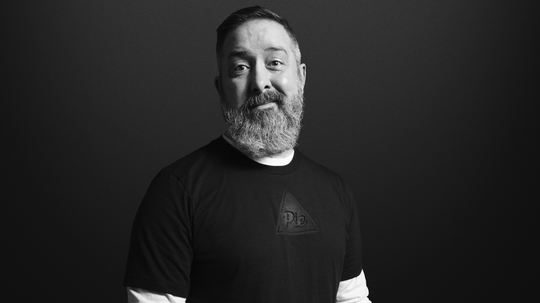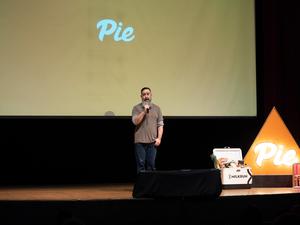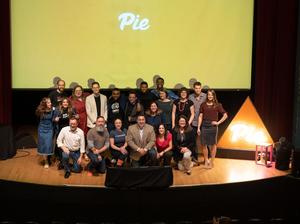
The Portland Incubator Experiment announced Wednesday that the upcoming Demo Day will be its last as the group shifts gears away from purely software startups.
The nonprofit will continue with two of its other programs: a consumer product accelerator through its collaboration with Built Oregon and a manufacturing-specific program in partnership with software maker Autodesk.
“I would see us moving back into the mode of being a more inclusive community-focused organization designed to repair and rejuvenate the startup community, not just an organization designed to handpick startups out of the community” said Rick Turoczy, co-founder and general manager of PIE, of the shift. “From my perspective this is an ongoing experiment. We are still around, we just aren’t experimenting with a software and SaaS accelerator.”
The final Demo Day is slated for Aug. 10.
The wake of the Covid-19 pandemic has transformed the community. New workers have moved to town at a time when community gatherings were on hold, and once gatherings started up again, there was a new mindset around what will pull someone into an event or a meetup.
When PIE launched 15 years ago, it was filling a space in a siloed community that was just getting started as noted in a 2015 PBJ cover story:
When PIE launched, Portland's startup scene was just beginning to simmer again. Tech firms such as Puppet Labs and Elemental Technologies were gaining traction, and entrepreneurs like Andy Baio and Alex Payne were building Kickstarter and the online bank Simple, respectively. The Portland Seed Fund was in the planning stages, the three-year-old Oregon Angel Fund had $3 million to invest, StarveUps was offering peer mentoring, and the Oregon Entrepreneurs Network was taking its conference model statewide.
But the scene was fragmented. There was no obvious center of gravity that brought the companies, talent, advocates and investors together.
Now, OAF is Oregon Venture Fund and in addition to its annual fund, which has grown substantially each year, it has a multi-year fund with a $50 million to $100 million target. Portland Seed Fund is in its fourth fund with a $20 million target and companies like Puppet and Elemental have had their exits. The same is true for PIE success story Cloudability and co-founder Mat Ellis, who is on to build his next startup.
These community changes highlight a maturing Portland startup community that is no longer just business-to-business software companies or companies building for what was then new mobile technology. Today there are more experienced founders in the community and new members from outside with their own networks to leverage, Turoczy said. Plus, programs like Y Combinator and TechStars are accessible to more entrepreneurs.
“The software accelerator version of PIE was a moment in time coming out of the (2008) downturn with a very strong software and open-source community serving as the foundation,” Turoczy said. “We really managed to be part of that community and leverage opportunities in that community until the next downturn. Now we are waiting to see what happens in this next economic phase.”
In a blog post outlining the changes, Turoczy says he is following the advice that PIE has given many founders before: When something isn’t working it is OK to walk away.
“This is not new. Or spur of the moment. It has been the topic of thoughtful — and sometimes heated — discussions with participants, alums, and mentors for several years,” he wrote. “As the pandemic wore on, as the dissatisfaction of a ‘virtual accelerator’ took its toll on staff and participants, as the economy once again tightened its belt. The community that surrounded PIE — that fueled the original version of the startup accelerator — became exhausted, spent, and completely burned out.”

Over the last 15 years, PIE itself has gone through many different iterations. When it left its first home at Wieden+Kennedy it paused its accelerator so Turoczy could work out how the program would move forward without the ad agency’s sponsorship and as a standalone organization.
“This time around it is very much based on what we see in the community,” Turoczy said. “This is a positive. If seeing PIE moving away from (software startups) is a negative, it’s only because positive things are happening in the community. There is more targeted and culturally relevant accelerator activity. That targeted accelerator will be a better experience than a generic software accelerator.”
This time there are others picking up the mantle. In Vancouver, North Bank Innovations is hosting events, in Portland Upstart Collective is trying to be a center of gravity with space and events and PDXWIT has been doing a lot of heavy lifting to keep the community connected, Turoczy said. There are culturally specific accelerators such as Latino Founder and the Built Oregon’s Bridges program. There is also the TiE XL Bootcamp to help people at the very earliest stages.
“PIE doesn’t need to be the thing. It needs to find people doing the next thing and help them realize the vision for the Portland software and startup community,” he said.








